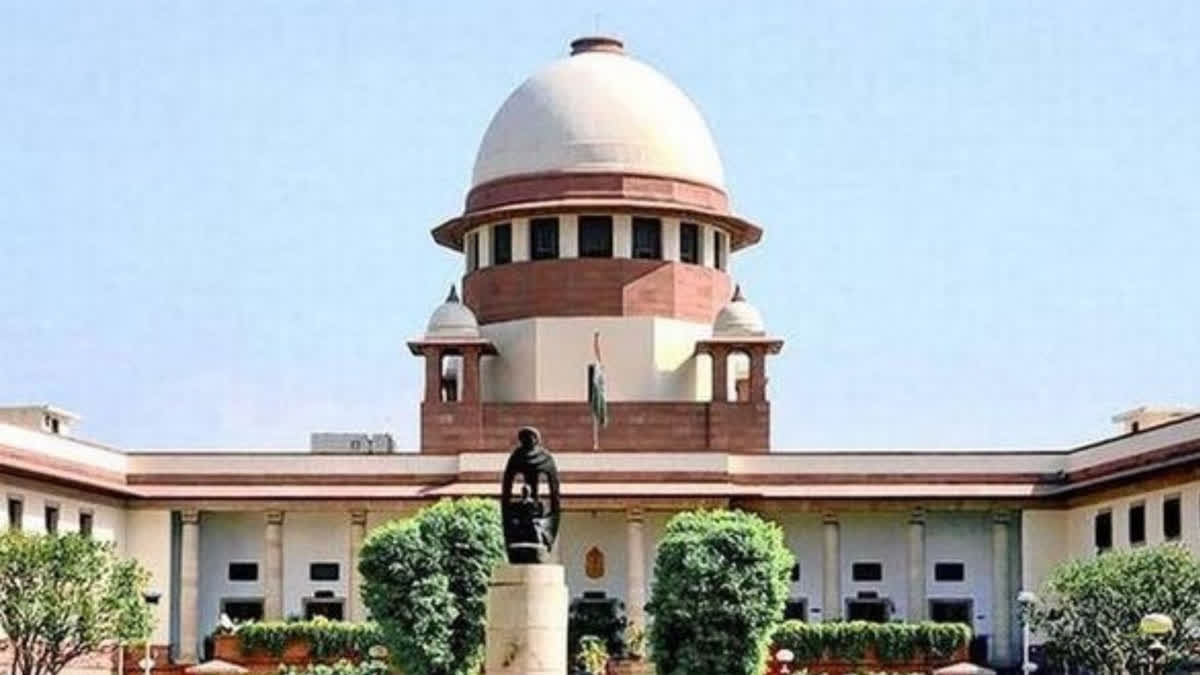New Delhi: The Supreme Court on Friday observed that it is difficult to define hate speech--whether the speech crosses the line, or it is not easy --and sought a response from State governments regarding the appointment of nodal officers district-wise and also stressed that the Director General in consultation with the DCP should form a committee of three or four officers to scrutinise hate speech cases and installation of CCTV cameras.
The apex court said wherever there are more than four to five cases of hate speech, the DCP can inform the nodal officer and the committee formed could ensure there is no hate speech and suggested the DCP-led committees in districts. A bench comprising justices Sanjiv Bhat and SVN Bhatti said that nodal officers (district-wise) can point out if some statement is not correct and the authorities do not believe it, and if it is correct, they have to point it out and upload the counter video. The bench said if they think something is not correct, then they must say "We do not agree with it".
The bench queried additional solicitor general KM Nataraj regarding the appointment of nodal officers, as per Tehseen Poonawall's judgment. The bench told Nataraj, “Wherever they have not been appointed please appoint them immediately…it should be state-wise because police are a state subject. All the states will file their affidavits regarding nodal officers…"
The bench asked Nataraj to ensure that an exercise is undertaken to check where nodal officers have not been appointed. The top court was informed that states have filed affidavits regarding the appointment of the nodal officers. The bench said, “If states have filed affidavits (regarding the appointment of nodal officers) then somebody has to scrutinise it...Nataraj why don’t you do it...state-wise...".
The bench said: “Second, CCTV cameras that have to be updated wherever and this has to be decided at the DCP-level in consultation with nodal officers…third wherever the number of cases of this nature (hate speech) is above four or five, the Director General in consultation with the DCP form a committee of three or four officers then scrutinise those (and take immediate action)”
Justice Khanna said, “The difficulty is how to define hate speech, it is not easy ... whether it crosses that line, it is not that easy. Therefore, the committee being formed probably can understand…a single officer may sometimes find it difficult. Authenticity or the source (content reading hate speech) has also to be checked...the CCTV can help you in that”
Also read: Will strengthen 2018 guidelines to curb hate crimes in country, says SC
The bench also stressed on sensitisation of the officers and said the police academies would have to consider this in a big way. The bench asked Nataraj to take information from states with regard to the appointment of nodal officers and a status report should be filed in three weeks. Nataraj also sought some time to come back to the court on the implementation of suggestions made during the hearing.
The bench asked Nataraj for a list of states where nodal officers are not appointed (table regarding district-wise appointment of nodal officers), second in connection with the installation of CCTV cameras, and also how nodal officers are effective and ineffective. The bench said that nodal officers must maintain a diary or register, and any senior officer, who receives any material or information must pass it on to the nodal officer.
The top court said where there is a threat that an occurrence has happened once, then the police must inform the nodal officer and ask the committee to decide on the steps to be taken to ensure there is peace and harmony and there is no hate speech and remedial steps should be taken. The top court said that its earlier orders on the issue should be followed in letter and spirit.
The apex court was hearing a plea seeking action against calls made by several groups for the boycott of Muslims following Nuh-Gurugram communal violence in Haryana. The application has been filed by journalist Shaheen Abdullah, who was represented by advocate Nizam Pasha. On August 11, the Supreme Court asked the Centre to constitute a committee to look into the cases of hate speech saying that there has to be harmony and comity between communities, and all communities are responsible and nobody can accept hate speech.
The top court asked the Centre’s counsel to seek instructions and inform it about the committee by August 18. The bench noted that coming to courts is not a solution while emphasising an in-built mechanism to deal with the problem of 'hate speech'. Nataraj had said the government does not support hate speech.
The top court observed that in the judgment in the Tehseen Poonawala in 2018, the court had issued fairly elaborate guidelines to the Centre and State governments regarding measures to prevent mob lynching, and it will further strengthen the guidelines by adding more. The apex court said, "If no CCTV was available... if any protests or rallies where such speech is expected, or anticipated, ensure they are video recorded”.



